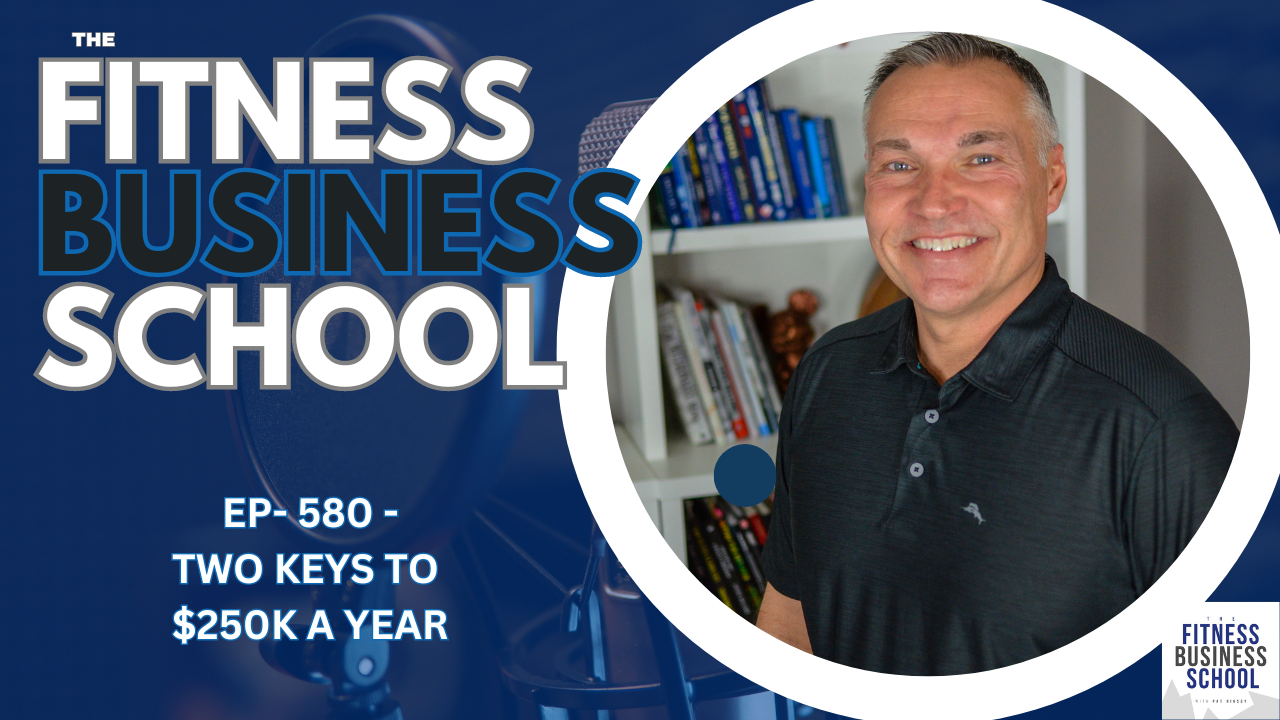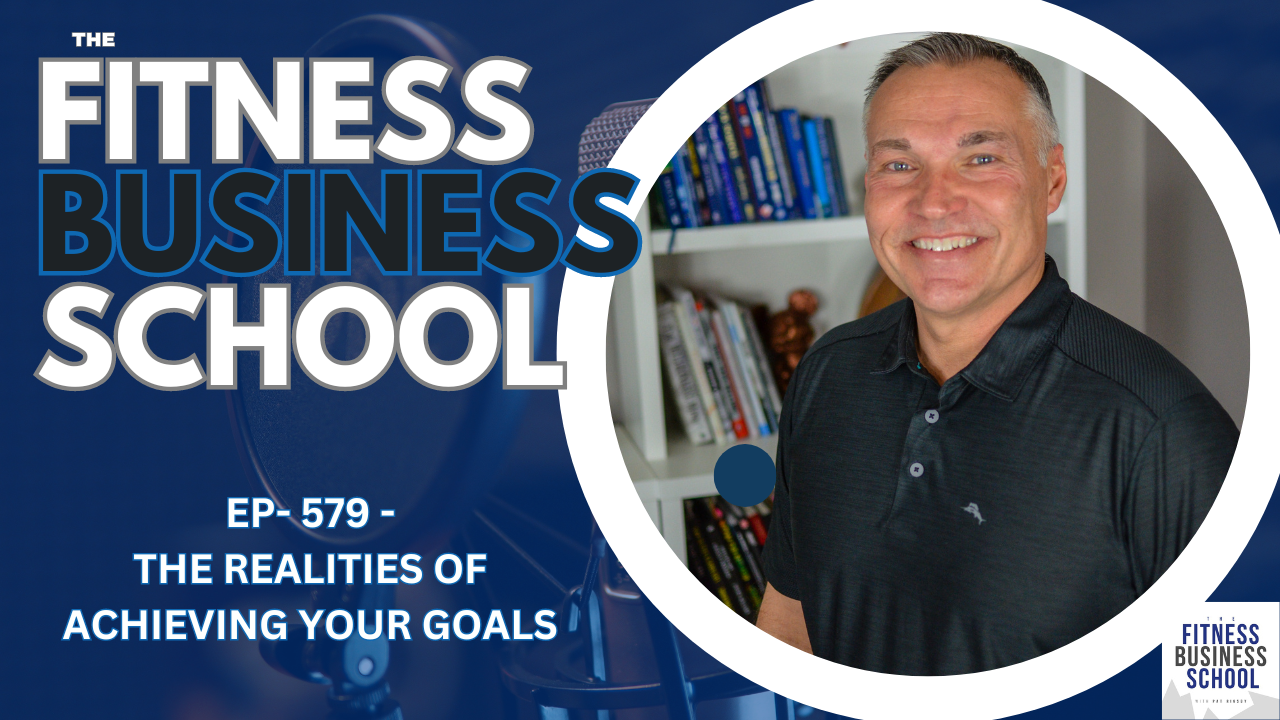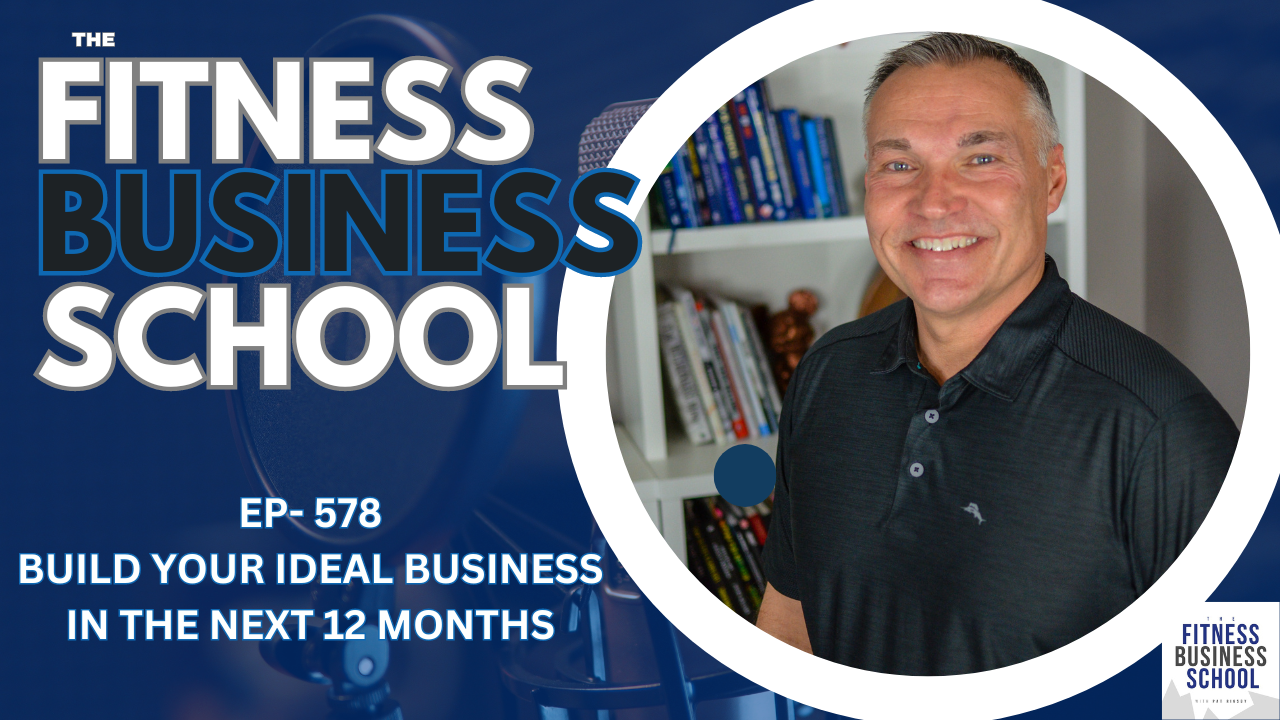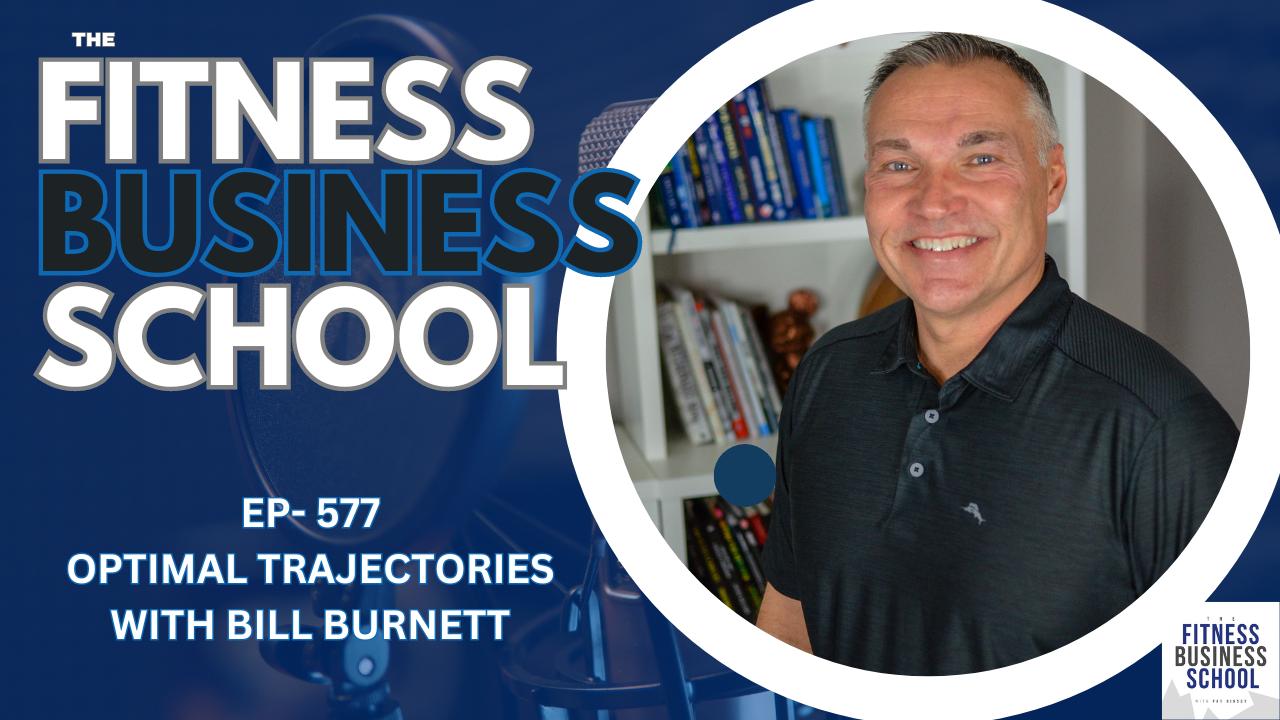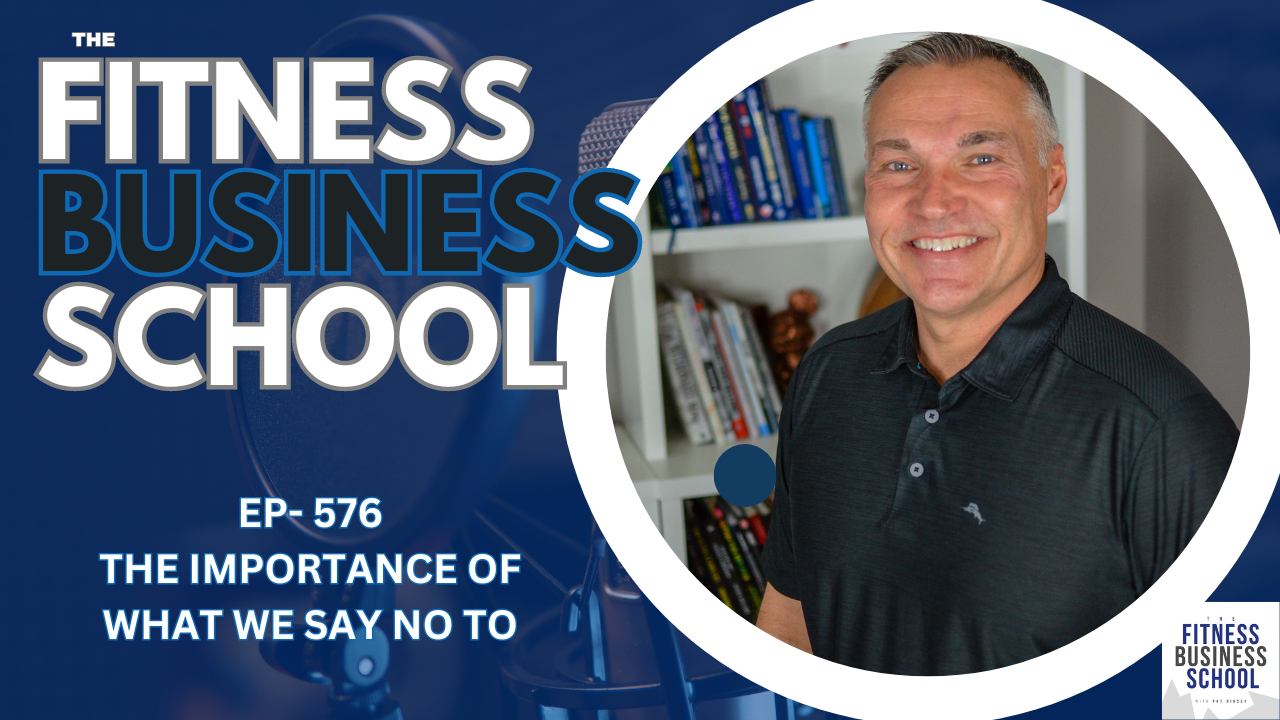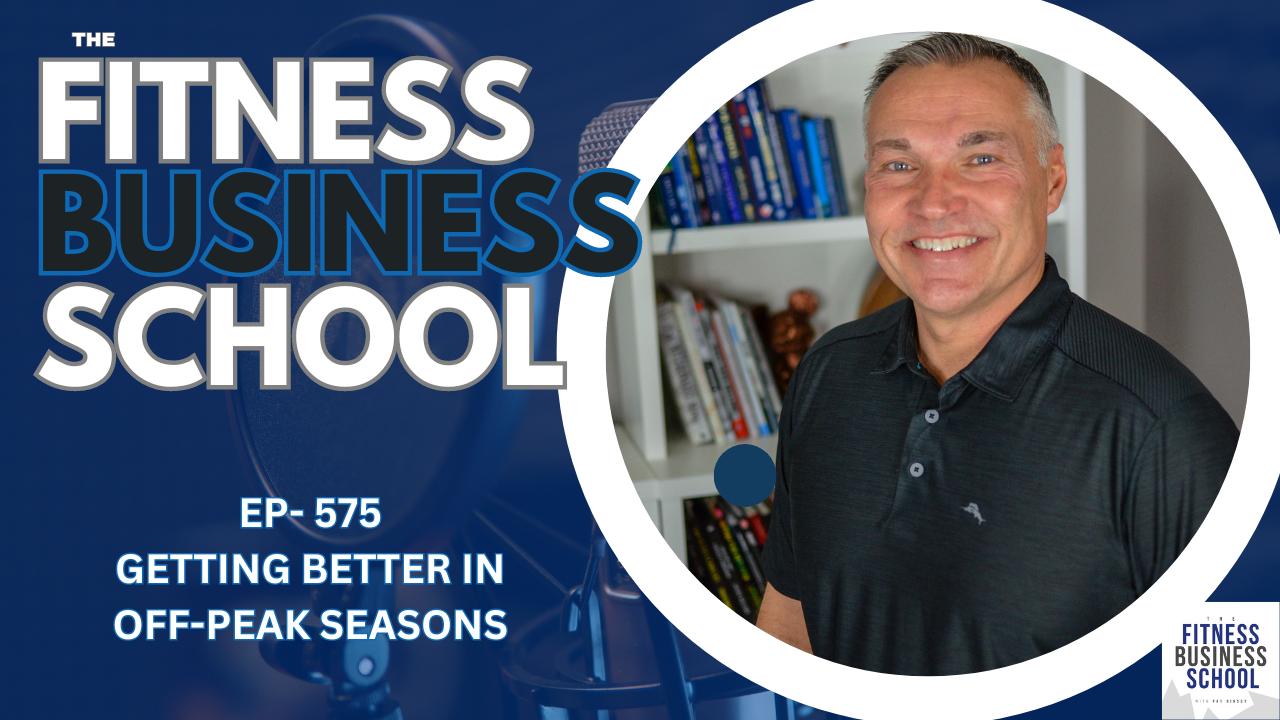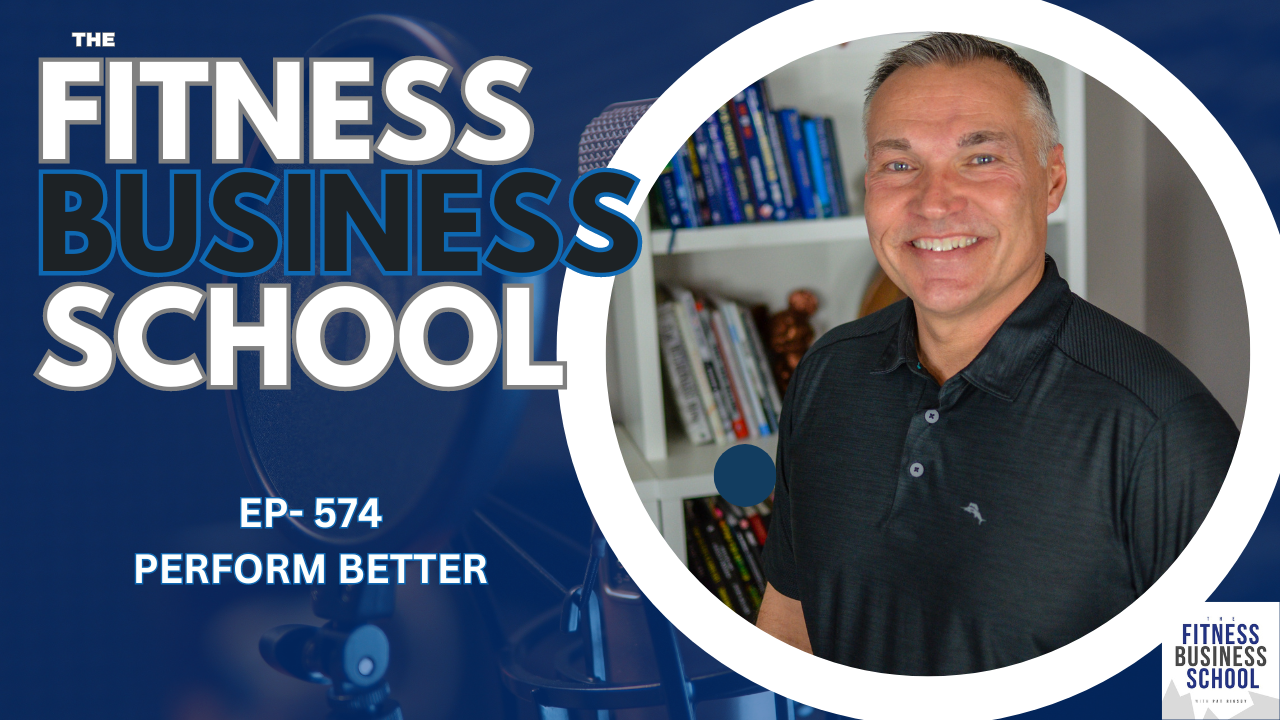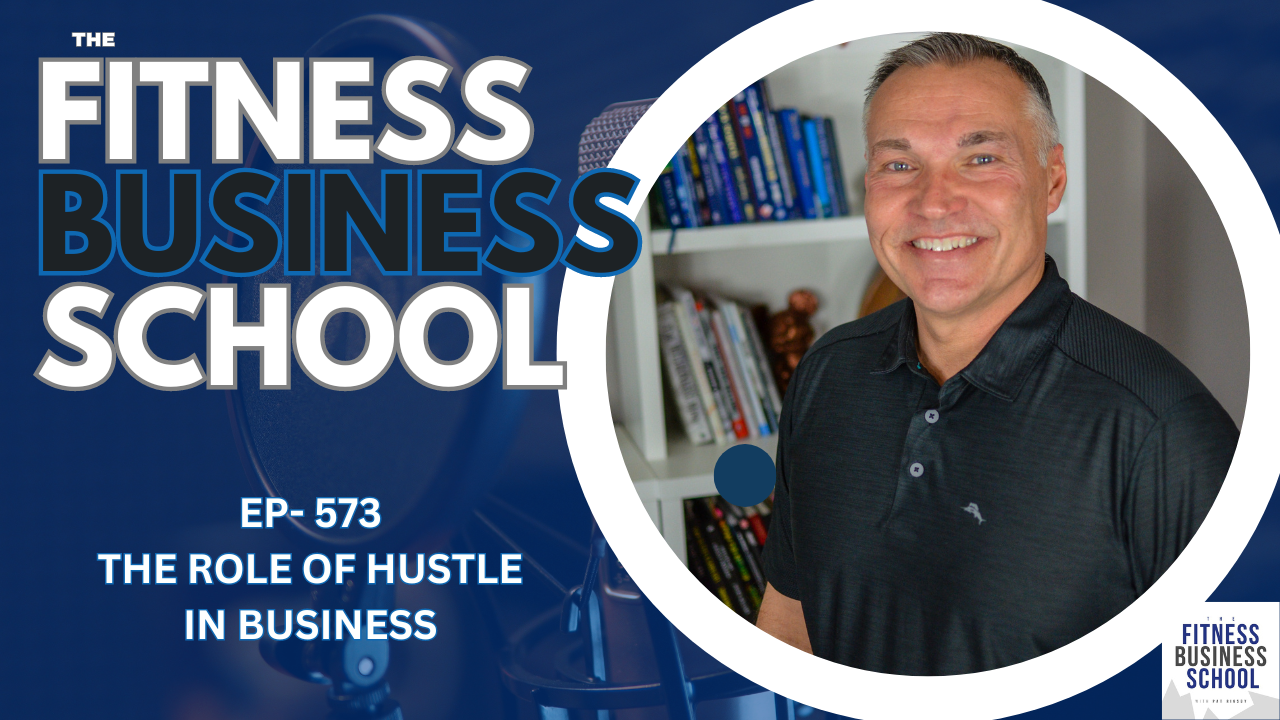Show Notes
00:00 Introduction to the Episode
00:28 The Power of Peer Groups in Sports
03:47 Peer Groups in Business
07:27 The Importance of Finding the Right Peer Group
08:52 Conclusion and Special Offer
Full Transcript
Hey, Pat Rigsby here and in today’s episode I want to talk about the power of peer groups. Let’s get to it.
Welcome to the Fitness Business School podcast, the show for fitness business owners who
want to grow their income, increase their impact and improve their lifestyle. Be sure to listen to the end
of this episode because we have a brand new special offer exclusive for listeners. So stay tuned.
I’ve long talked about my time as a college baseball coach and it being a really a driving force, a catalyst to most of the things that I’ve done in my entrepreneurial life. And one of the things that I picked up early on was just how culture mattered, how the peer group you were in, what the standards were, what the expectations were mattered.
Our baseball program led the country in hitting over a six year span, all divisions. And at the time, there were probably 2, 500 colleges playing. And we had the highest team batting average, over those six years of all 2, 500 programs, which was very much about the culture and the players and the kind of standards that they enforced and very little probably about me.
And it was an interesting thing because there would be guys who would transfer in. We had a lot of transfers. The university, Shawnee State University, where I coached lent itself to Kind of blue collar transfers, first generation college students. And it was, I think, a great place for those types of people to get a degree and be involved.
But so many of these kids who would come in that would transfer in had performed at a pretty mediocre level from a hitting standpoint, where they were previously. We had people who would be okay hitters. Previously, and then they would come to us and that would be really good. They’d perform at a really high level.
One of my best bet, actually the best hitter that I had during my time there, who’s now a tremendously successful college baseball coach. He was okay in his first two years in college as a hitter. He was certainly. above average, but when he got in this environment and changed probably some of the ways that he operated, he ended out being an all American and going from hitting like three home runs to 17 and 19.
And we had so many people that saw a similar evolution as players. Maybe not to, to that top end of performance because he was extraordinary, people who were very average in a junior college or very average at the school they were before they’d come and for us, they would hit really well, but it was, So much about the peer group, just a group of guys that would hit extra group of guys that really took their craft to heart and there was a standard of performance.
There was this kind of culture there were shared Best practices how to do things what to look for in certain situations how to approach at bats and I think there was that kind of cliche rising tide lifting boats mentality. And I’ve seen it so many times in business too. Our boardroom mastermind group, the on, on average, a group of our top performing clients.
It’s not all the best clients that, that I get the privilege of working with, but it’s a lot of them. And they universally, they, when we met every one of them had their best year. To date. Either from a gross revenue or a profit standpoint this past year. And I think that Doug Sperling, who is my co coach in boardroom, and I certainly do our best to contribute and to be.
Advisors and coaches. But I think a lot of it is you’ve got a group of really successful people who share best practices. They there’s. Like an unsaid standard, the attendance for our zoom meetings is so much higher than the attendance for most every other group that I’ve seen as a percentage of the total group.
And I’ve been in mastermind groups where the entry fee was six times the entry fee to, to our boardroom group. And the attendance wouldn’t be nearly as high as what we’re getting here. But you have a bunch of people who just in proverbial terms, lock arms and say, Hey, we’re going to set the standard and everybody gets to see what’s possible.
They see that somebody else goes from 400, or see somebody triple their revenue or double their profit or whatever else. And they’re like, Hey, I can do that too. And there’s this almost this, like I said, an unsaid standard where. Because other people may be improving their systems or getting better at developing their team or something like that, a lot of that just cascades into the group.
I think, yes, some of it’s being in the right peer group, because like I said the players that I had, it’s not like they magically got twice as talented in a short period of time. The people in boardroom, it’s not oh, all of a sudden, their DNA completely changed, their location changed, anything like that.
A lot of it’s just people. Putting yourself in a situation where you can thrive and what’s fun. I’ll tell you one of the really neat things. When I see somebody join boardroom is people that are, they meet our minimum threshold for somebody who would be a good board member. member of the group.
Cause obviously we want to maintain the culture, the integrity of the group, but somebody that it may be the investments, a little bit of a stretch or the there’s a little bit of fear or concern. Hey, do I fit into this group, man? What’s fun is watching somebody there and then looking at them a year later and saying, wow, yeah, you fit right in because you, you embodied the right, Characteristics and you join the group and you leverage the group and you add it to the group and now you’re in a better place than you probably thought.
Could have gotten doing five years of what you’re doing before six years, 10 years of doing what you’re doing before in that single 12 month window. So if you are not involving yourself in a peer group, if you’re not in an environment that lifts you up, the that makes you better there, there are other people doing some of the things that you want to do.
Not necessarily that you need to go emulate anybody directly because each of us is running our own race and has our own goals and. Any another, any number of other kind of individualized variables, but there’s always somebody you can learn from. And so if you’re not doing that, I think you’re.
You’re missing out. And I know in my own case, I’ve invested in dozens of mastermind groups over the years, and some of them have helped me springboard forward in areas in a matter of months that I don’t know that I would have gotten in years and others fell flat. So some, sometimes you get to find the right place for you, but.
That doesn’t mean that if you try something once or do something once that it’s that if it’s not a fit, that something better is not out there. Go experience things, find the right lane for you. Because if you do land in the right spot, it can be a total transformation.
Thanks for listening to this episode of The Fitness Business School.
Before you go, I have a quick announcement:
One of of the things that we’ve been doing with our current clients is taking them through this Ideal Business diagnostic and really what it is, this checklist that allows you to pinpoint exactly what your business needs next so you can keep improving, keep growing, and build a business that you love to own, one that pays you well, one that allows you to have the impact you wanna have and one that allows you to have a lifestyle that you truly enjoy.
In this diagnostic, we walk through everything and we do an evaluation and can instantly pinpoint what you need to do next to build that business that you want. I’m going to extend this opportunity to get on with either me or my team and take you through this evaluation and fix your business’s most vital needs fast.
So if we take you through this, you’re gonna be able to make those vital changes that you need to finally have what I call your Ideal Business. If you’d be interested in going through this entirely free, risk-free diagnostic with us and learn what you already have in place, what you’re doing well and where are your greatest opportunities for rapid improvement are just shoot me an email with diagnostic in the subject line to [email protected].
Again, an email to [email protected] with diagnostic in the subject line will get
you scheduled and take you through this evaluation to help you build the business you want.
